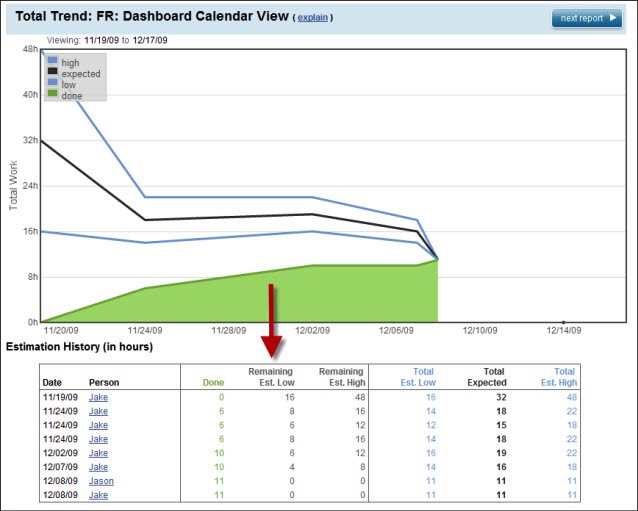Is this you? You’re working with a team on a new project estimate and start to find that it has similarities to past projects. What is the first thought to hit your mind? Is it, “What was the estimate we made for this task last time?”
STOP right there! This is a common mistake that many teams make in building a new estimate. Rather than look at what the initial estimate for an old task was, it’s much better to look at how long the task actually took when the project completed. This might be easier said than done depending on the tools you’re using. Ron Rosenhead, in a recent blog post asks his project management class if they keep records of task estimates, or if at project closure the initial estimates for reviewed for accuracy. His students answered both of these questions with body language that screamed, “Of course we don’t.”
So, why is it so difficult to track estimates for past projects? It depends on what system the project team is using to log time and how accurately time is being logged. In a scenario where the team is not using any time tracking system, the accuracy of the actual vs estimate is only as good as the ability to manually gather the information from the person performing the task. When a time tracking system is being used, you will need to ensure that team members include detail about the hours they log each day and not just note the time as “programming for project A.”
Ideally, you will have your team setup on a system that enables the team members to log time to each specific task, rather than just the entire project as a whole. With a team using LiquidPlanner, all members will be logging time against specific tasks in the project, and regularly re-estimating how much work is left to be done. Then, at the end of the project the Total Trend Report will show how well the estimation was throughout the project. This can be referenced at any time and will be especially handy when it comes time to build a new estimate.
Rosenhead also recommends using a ranged estimate and revising this range as the project continues. He writes:
“As someone suggested, ‘project management is like a game of golf – be realistic and reconsider your plan after every shot.’ Estimates are no different.”
Incorporating this regularly into your project routine will not take much time and will prove incredibly valuable, especially if done with the right tools.
 Schedule a demo of LiquidPlanner with a product expert today
Schedule a demo of LiquidPlanner with a product expert today







